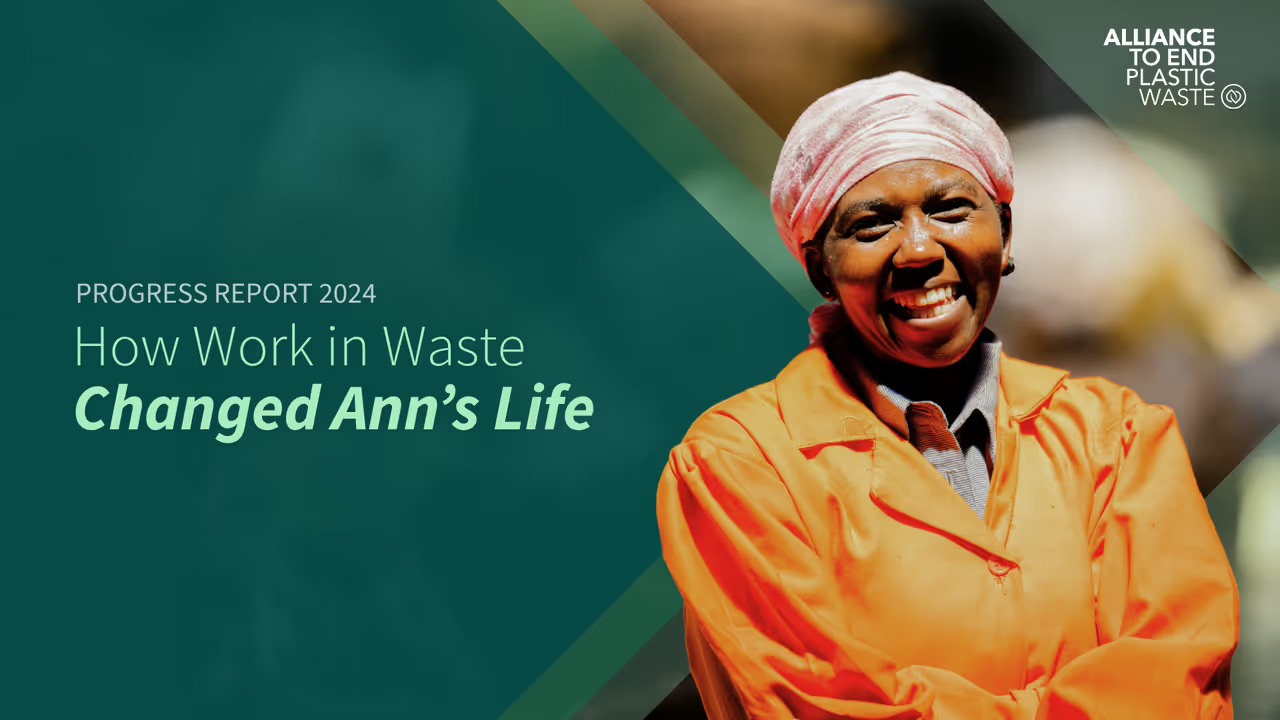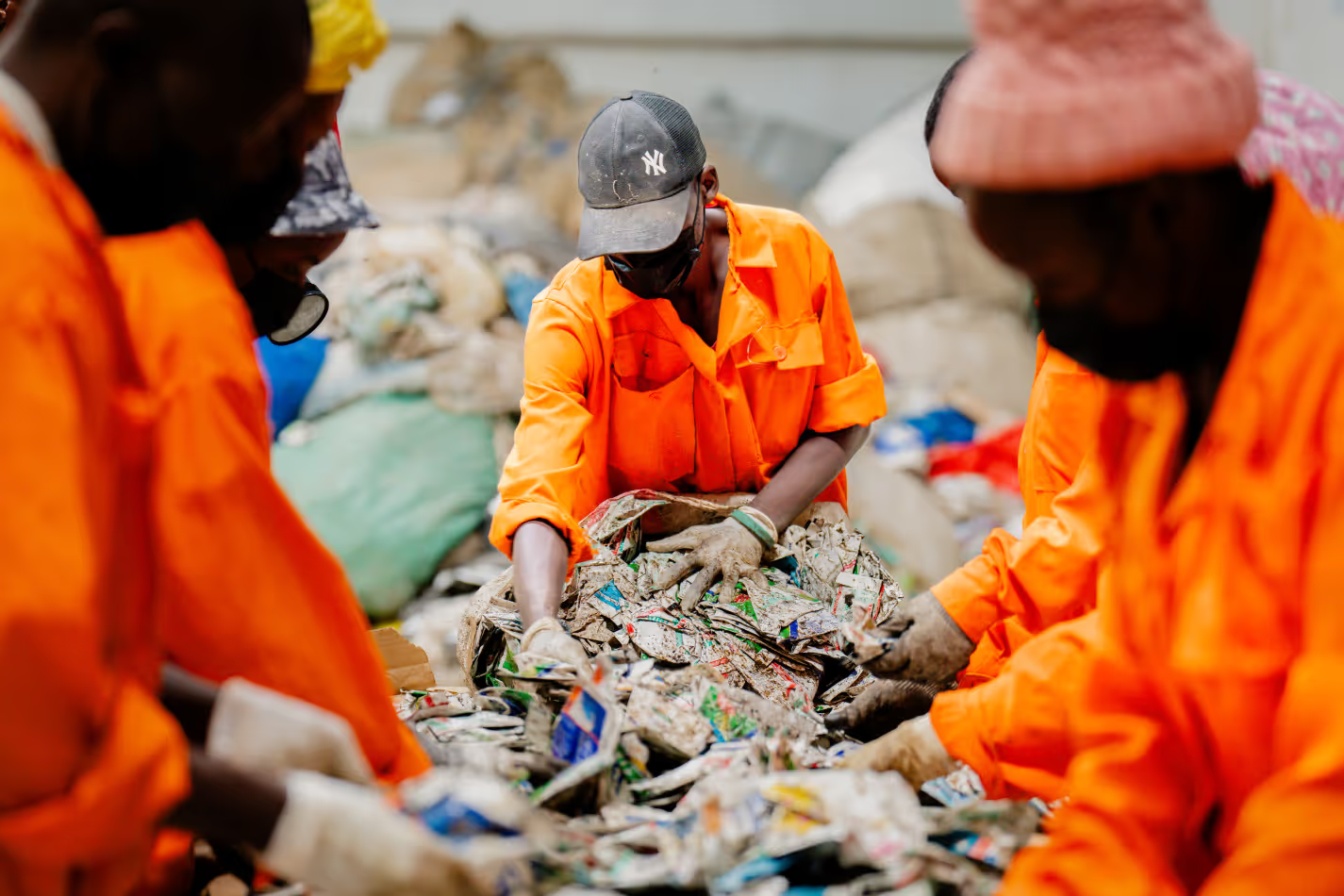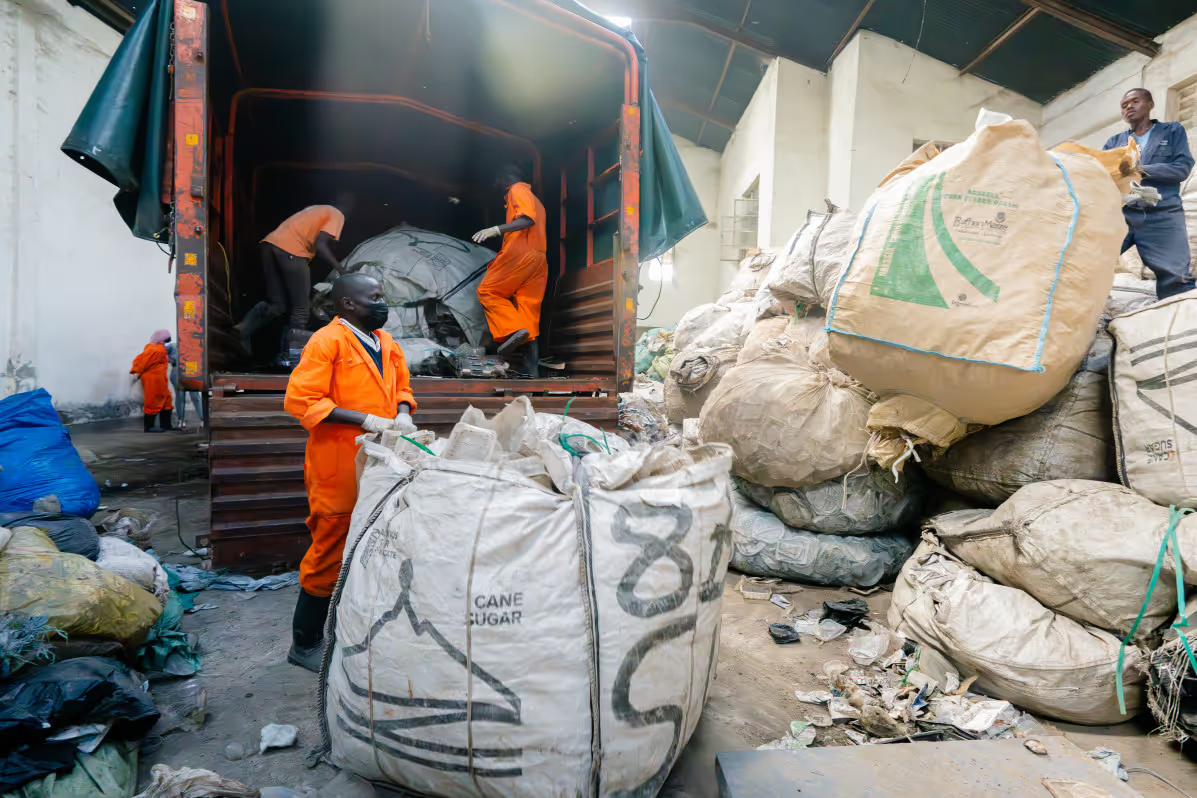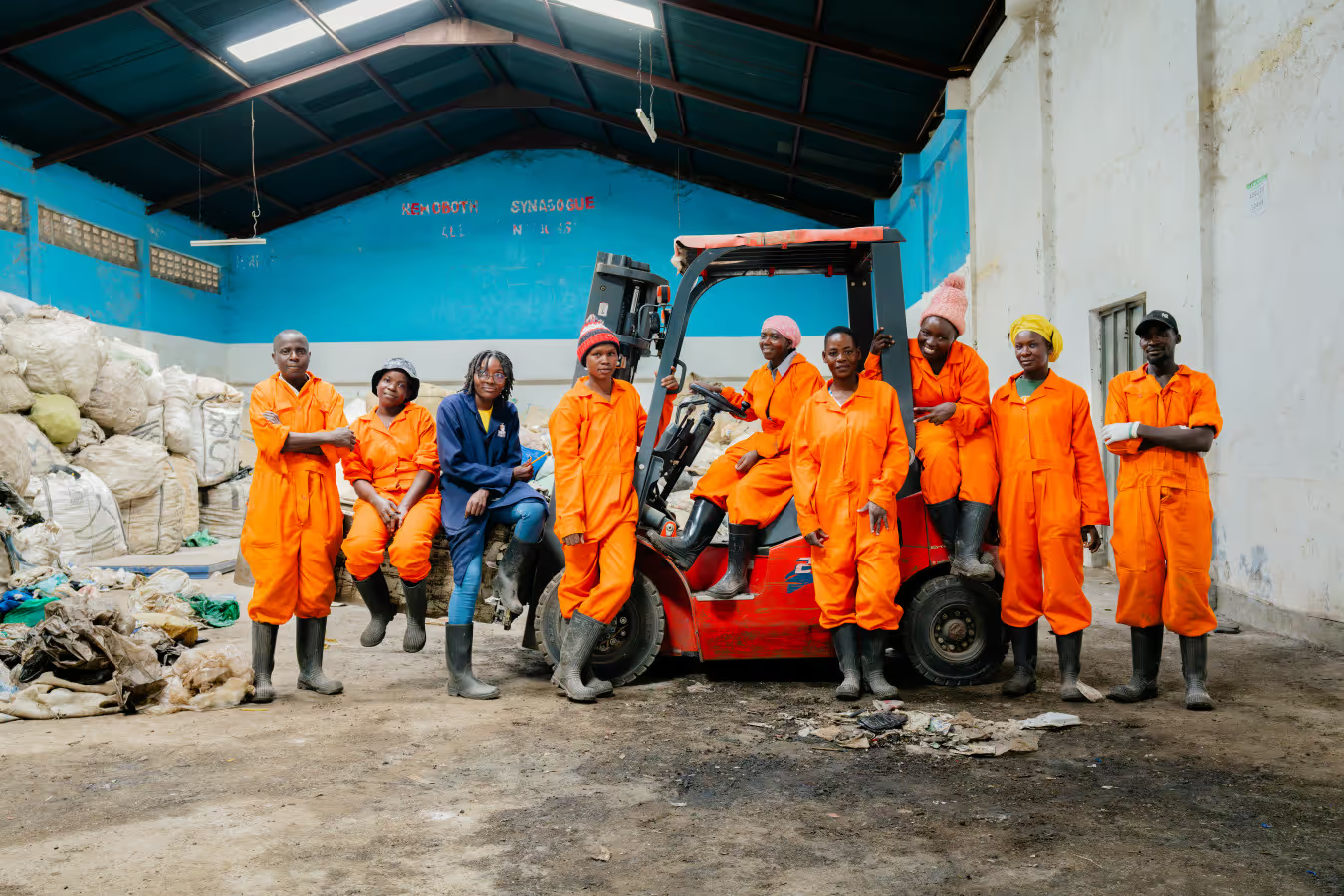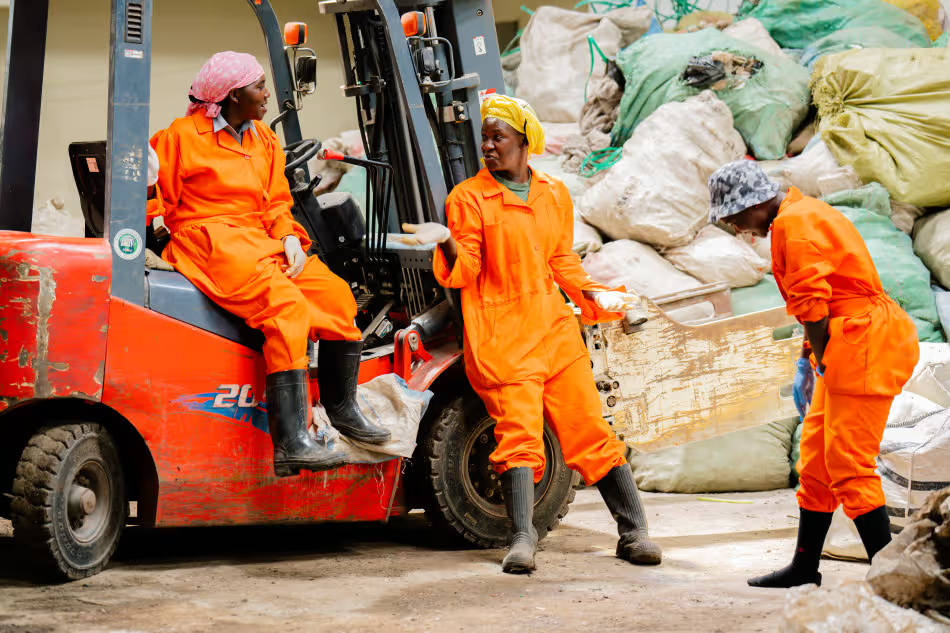
Taka-Taka Solutions
Download Our Progress Report 2024: Evolving for Impact
The Alliance supports a range of projects in countries that are at different levels of plastic recycling maturity. All are attempting to break through assumptions of what is currently possible within their local context. Find out more in our Progress Report.
In Kenya’s capital, Nairobi, lies the sprawling 12-hectare Dandora dumpsite, where much of the city’s daily household and industrial waste ends up.
Nairobi generates between 3500 tonnes of waste daily, and the city’s waste management infrastructure struggles to keep up.
Growing up in Mombasa, a coastal city in Kenya, German-born Daniel Paffenholz witnessed firsthand the pernicious effects of poor waste disposal methods. In 2011, he founded TakaTaka Solutions (which means “rubbish” in Swahili) to improve waste management and sorting in Kenya and, in turn, boost recycling rates.
TakaTaka is not the only private firm in Kenya offering waste management services. What sets it apart, however, is its breadth of services.
Most waste collectors in the country operate on a ‘collect-to-dispose’ model. This means the waste they collect primarily ends up at dumpsites, and only high-value items like cardboard and Polyethylene Terephthalate (PET) bottles are cherry-picked and sold to recyclers.
To increase recycling rates, Paffenholz needed TakaTaka’s services to be more comprehensive and integrated into the waste management value chain.
TakaTaka emphasises sorting waste more efficiently at the source—households and commercial buildings—so that both organic and recyclable waste can be collected and diverted from landfills.
Organic waste is composted or sold to pig farmers. Plastic waste is converted into pellets and sold to recyclers. TakaTaka also collects and sells materials like metal, glass, and cardboard, to thrid-party recyclers.
Another key focus of TakaTaka is low-density polyethylene (LDPE) material, one of Kenya’s largest untapped recycling resources. Flexible plastic packaging, such as food wrappers and milk sachets, is usually made of LDPE.
“Although flexible packaging makes up half of all plastics produced and used in Kenya, only 1 per cent is recycled,” says Paffenholz. Most recyclers shun flexibles as they are usually of lower quality than rigid plastics. Many flexibles are also printed, on which is considered contamination, making them difficult to recycle.
Cost is another concern.
Because these materials are often hjghly contaminated, have a large surface area, and their low weight per piece makes it costly to recover them from the dump site, flexible recycling is economically very challenging,” shares Paffenholz
To manage costs, TakaTaka is trying to improve quality control at the sourcing stage and is working to reduce loss rates during production. It is also exploring higher-value applications for low-value recycled materials.
TakaTaka piloted a facility to recycle lower-value materials like flexible and contaminated hard plastics. They are washed, processed into pellets, and reintroduced into the local plastic production system as an alternative to virgin plastic feedstock.
TakaTaka sells its pellets to manufacturing firms to generate revenue.
Paffenholz says that TakaTaka’s efforts have paid off. TakaTaka boasts a 90 percent recovery rate for its collection. The company has seven centres in Kenya, including its main buyback location near Dandora. Today, TakaTaka processes up to 300 tonnes of plastic bales per month.
Powering recycling through engagement
To boost the volume of feedstock, TakaTaka had to drive up collection rates.
As part of that effort, the company regularly conducts community engagement campaigns to teach residents the importance and value of separating waste and provides them with the resources to do so. For instance, residents are given colour-coded bin liners along with instructions on which types of waste to place in each bag.
TakaTaka also actively reaches out to informal waste workers to improve their circumstances. Most informal waste workers in Kenya are self-employed, have limited formal education, and rely on waste picking as their primary source of income. They lack all the benefits and protection that come with a formal job.
With the Alliance's support, TakaTaka has been improving the social safety nets for these workers by providing regular health checkups, protective equipment, and even establishing two kindergartens near the dumpsites for children to go to school. In addition, TakaTaka subsidises the kindergarten fees and provides stationery.
Overcoming challenges
The biggest challenge for initiatives such as this is economic viability. TakaTaka’s work is difficult because there are no government subsidies and regulations to incentivise recycling or encourage manufacturers to use recycled material.
To scale its impact, TakaTaka had to find the right partners who understood the waste management sector. The Alliance backed TakaTaka’s vision and funded almost half of the construction of a new flexible plastic processing plant through a loan.
TakaTaka is unique because it is one of the few projects that deals with all types of waste in an integrated manner, from collecting waste to sorting, recycling, and selling it. The organisation also collects waste from landfills, especially from Dandora.
But the journey has not always been smooth sailing. There are several pain points that TakaTaka has had to manage. For instance, getting a reliable source of waste materials from informal waste workers, especially flexibles, can be an issue.
Some of the waste materials that the suppliers deliver are dirty and wet, which adds to the weight. So even though TakaTaka pays for all the material received, it might only be able to process part of that collection and discard the rest. This problem could potentially impact the organisation’s cash flow.
To deal with this, TakaTaka uses a compressor to remove the water to obtain the exact weight of the collection and takes out the dirty material before paying the suppliers.
TakaTaka also faced issues in maintaining the processing line equipment. One of its units frequently malfunctioned, impacting the recycling process.
With the loan provided by the Alliance, TakaTaka was able to purchase state-of-the-art equipment, including an extruder, pelletizer, washing line, and wastewater treatment system. As a result, it can now improve qualitycontrol in its recycling process and increase pellet production.
From improving a flawed waste management system to creating fresh demand for plastic recyclables, TakaTaka has shown that while the plastic waste crisis can be challenging, circular waste management is possible even in difficult markets.
